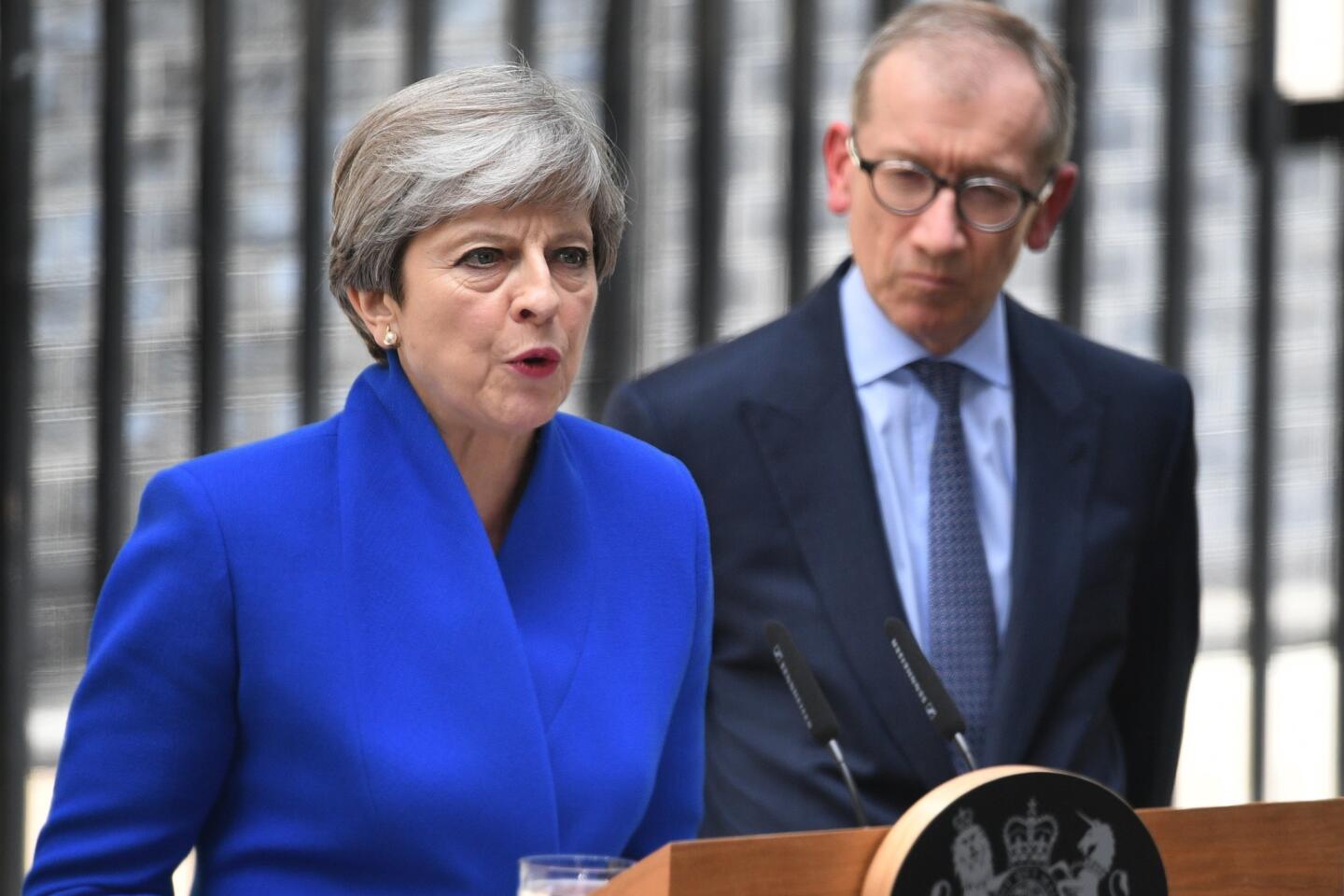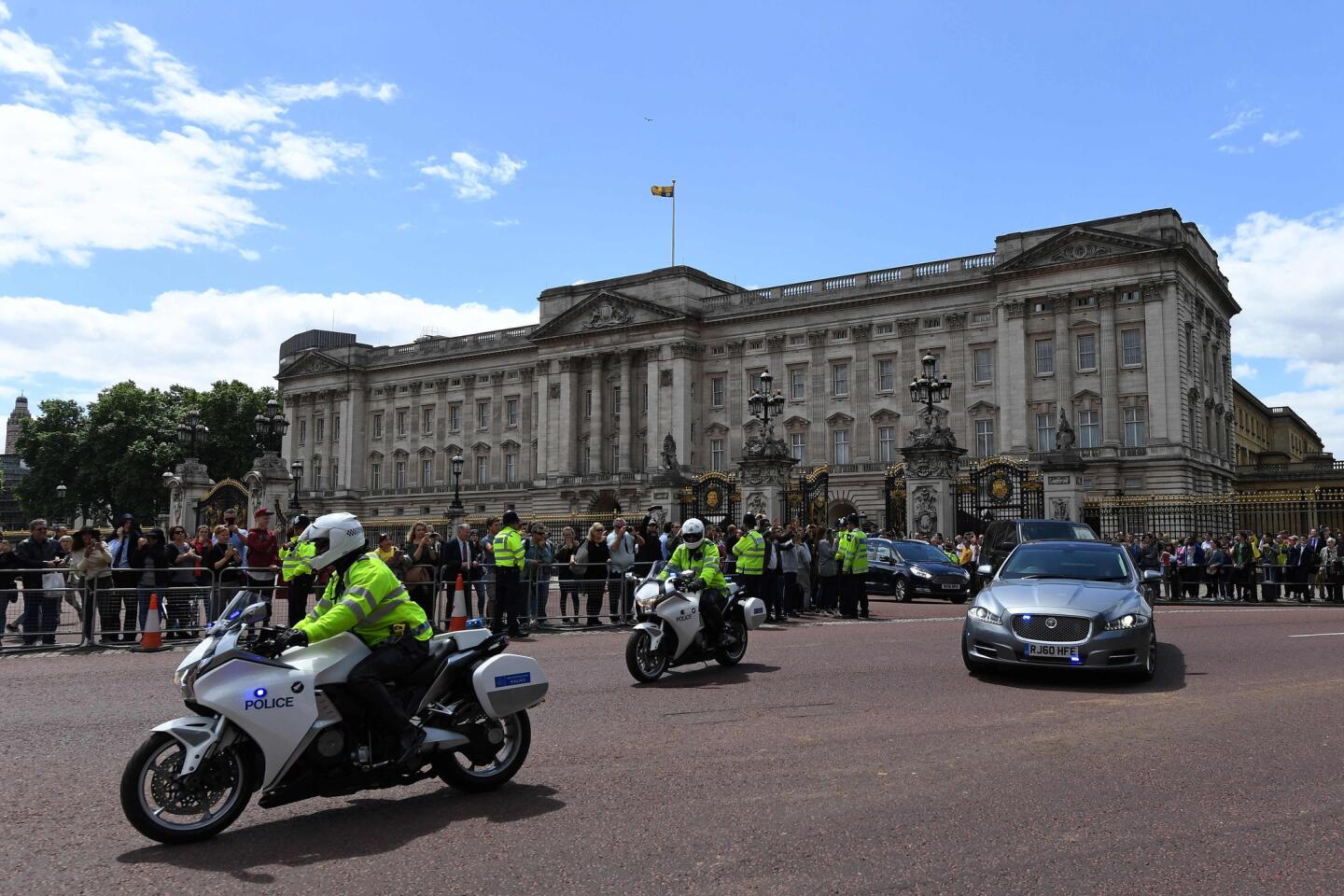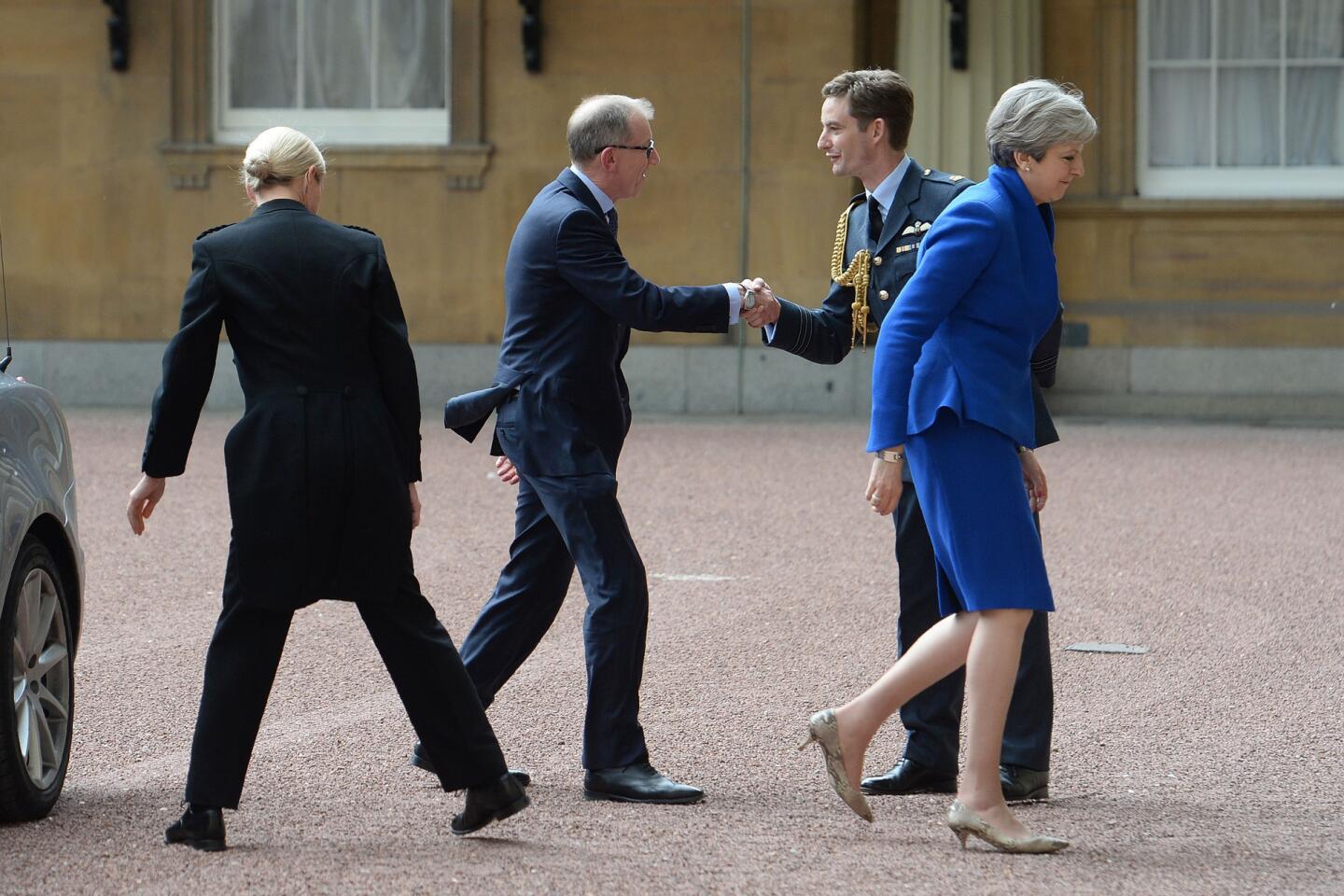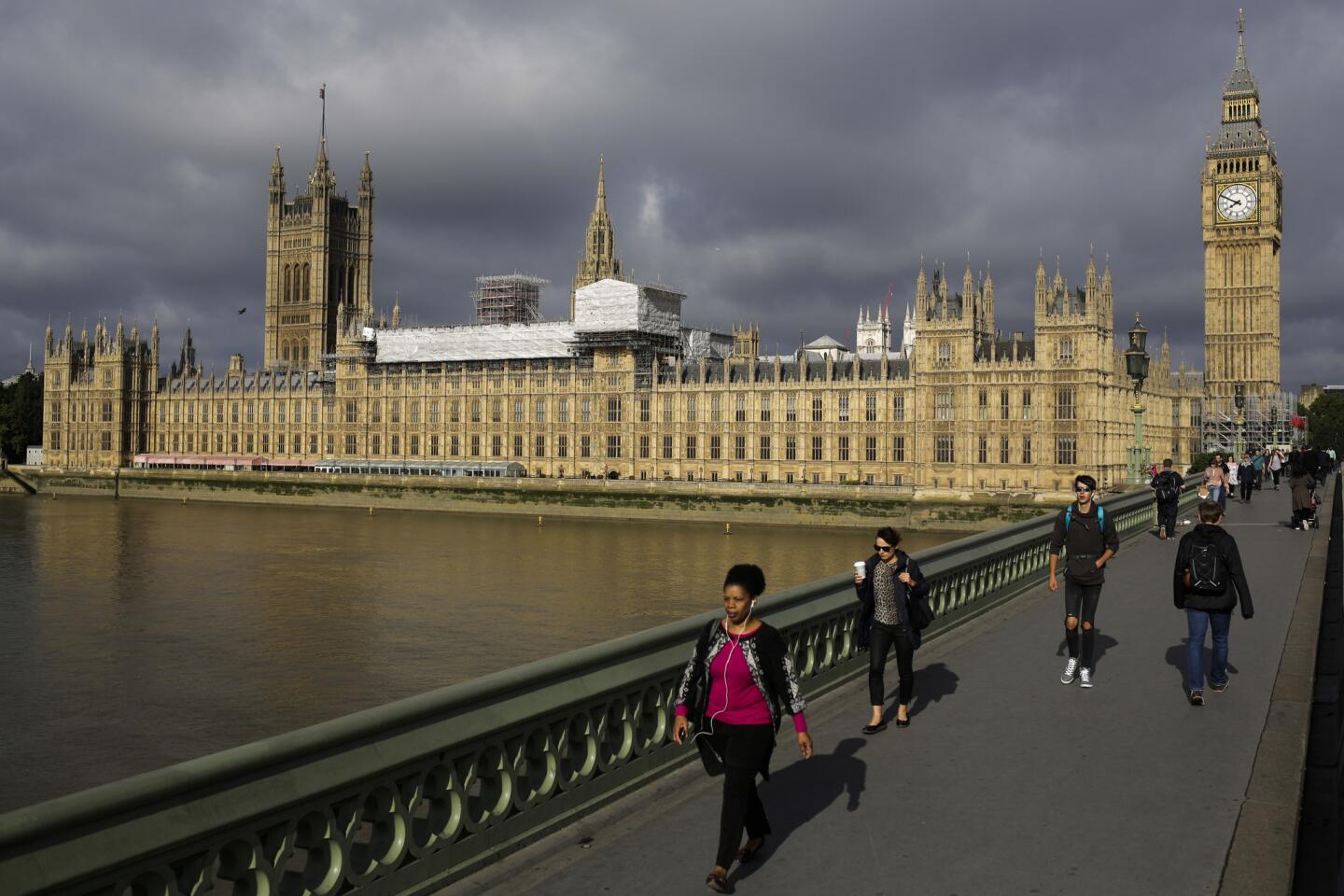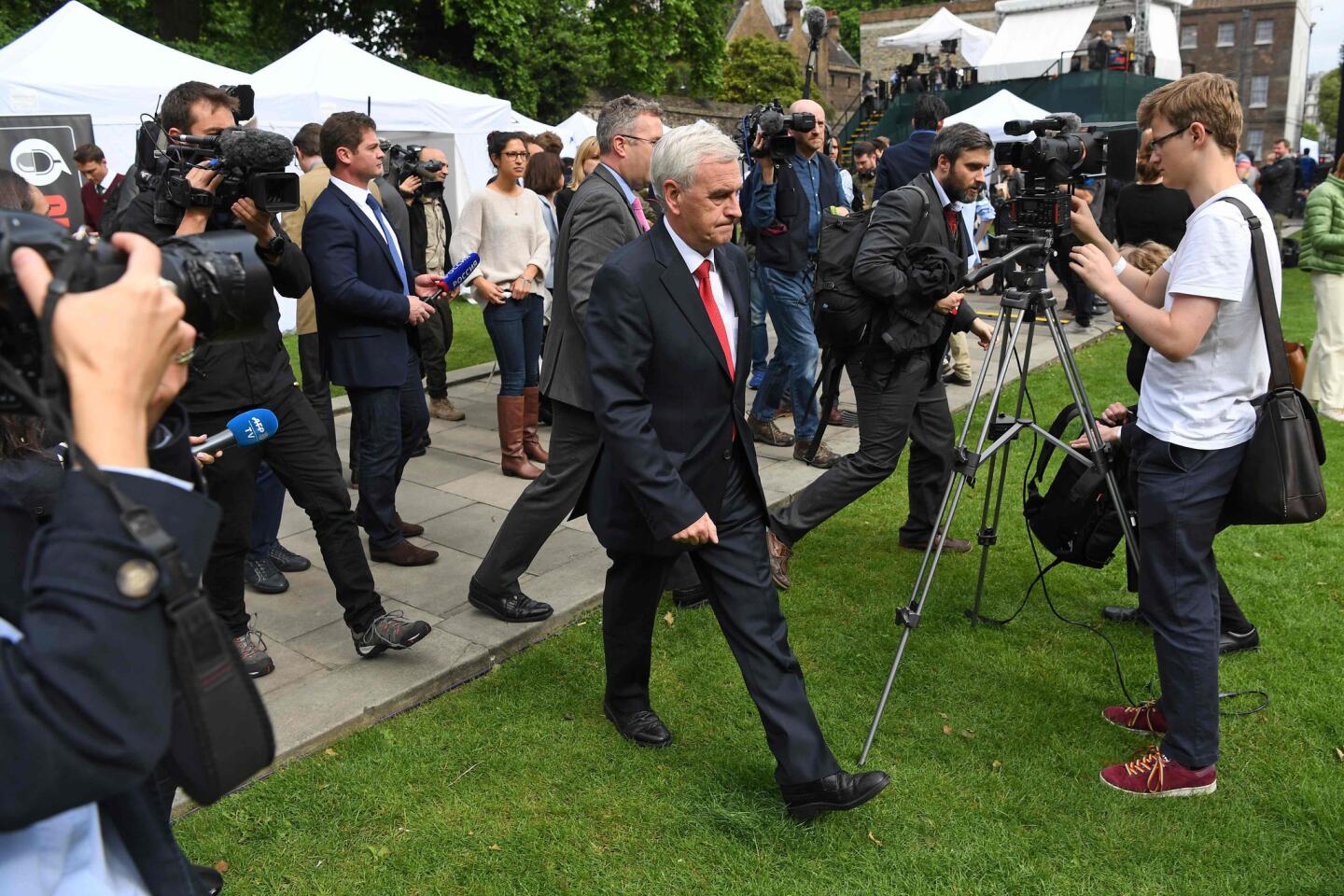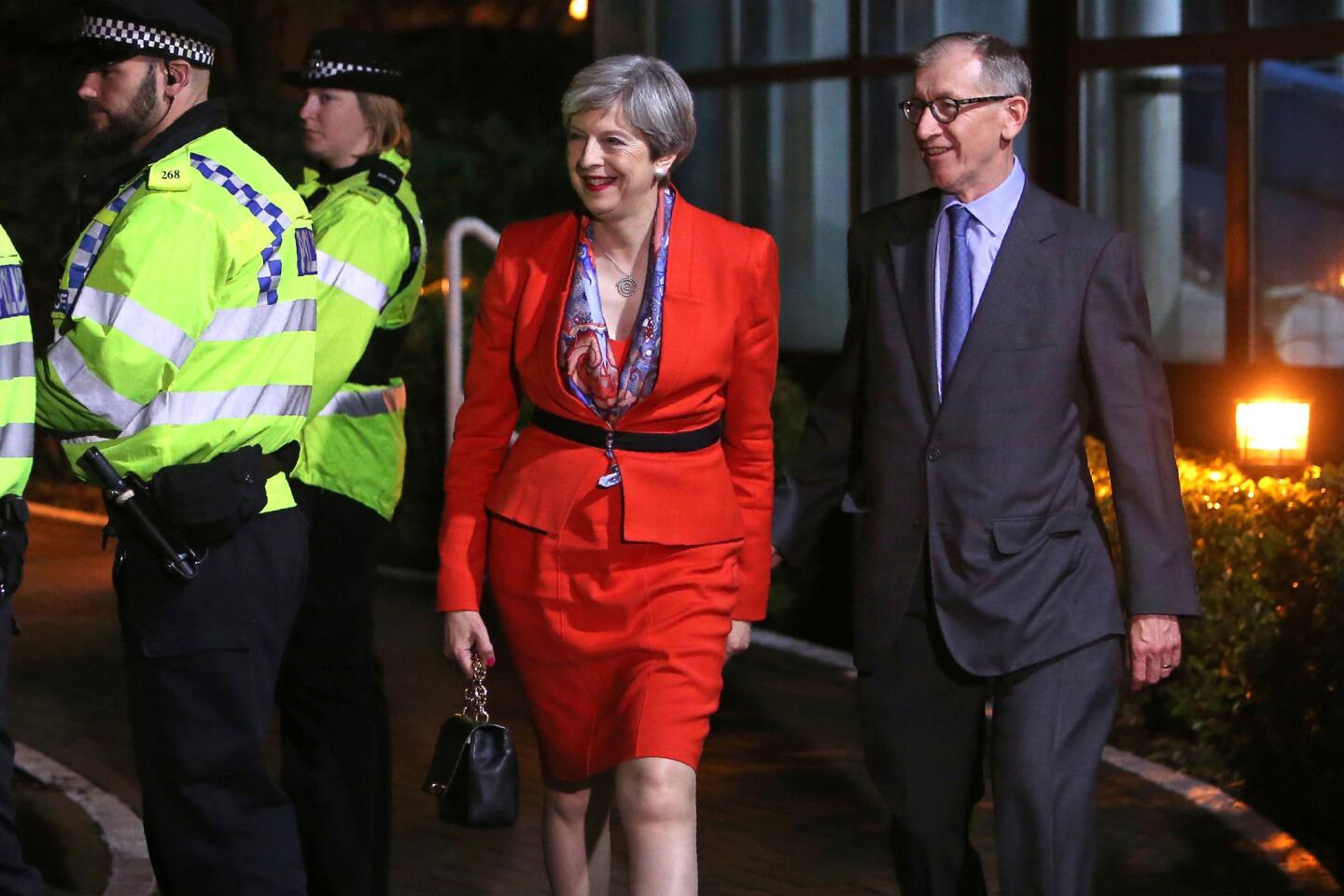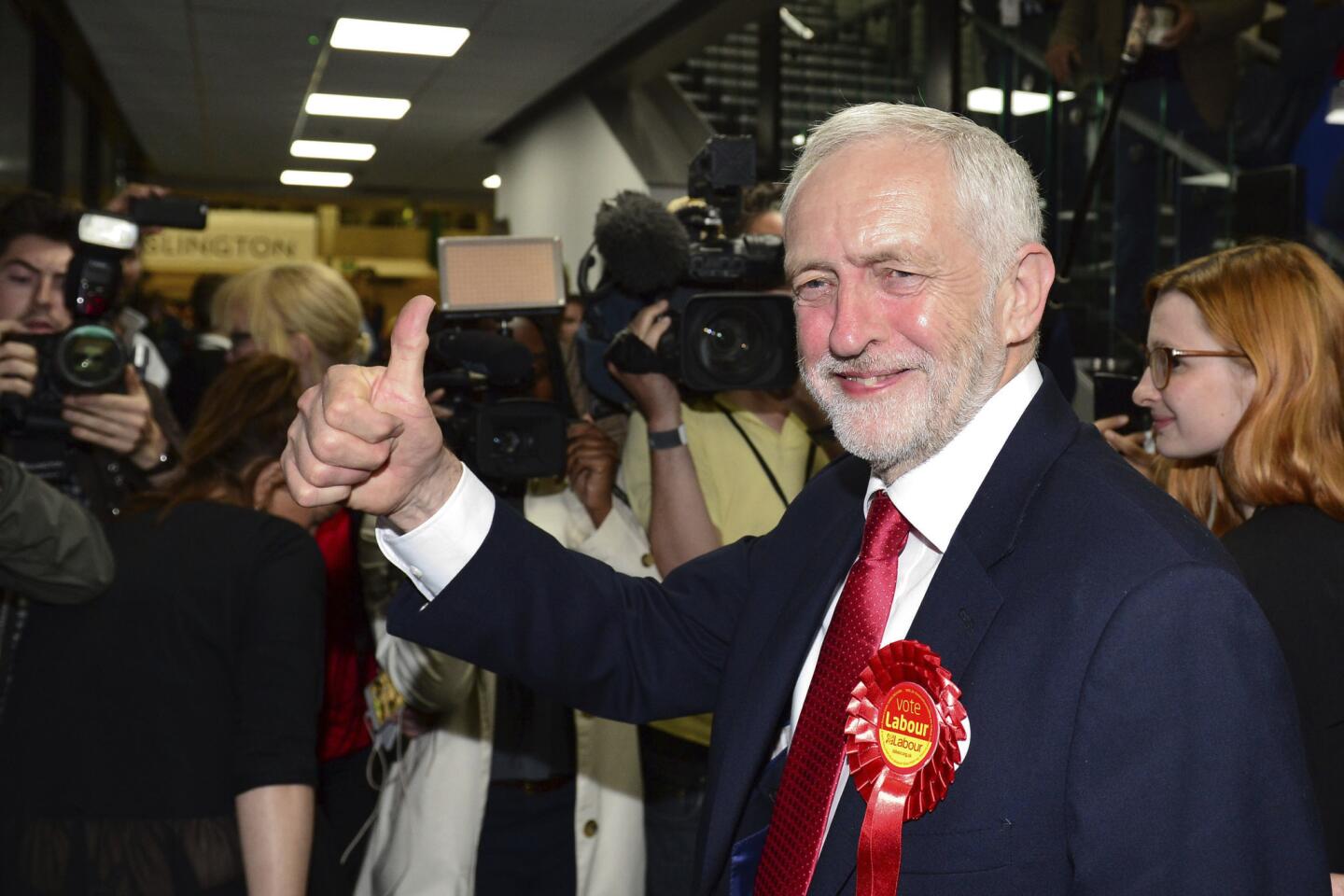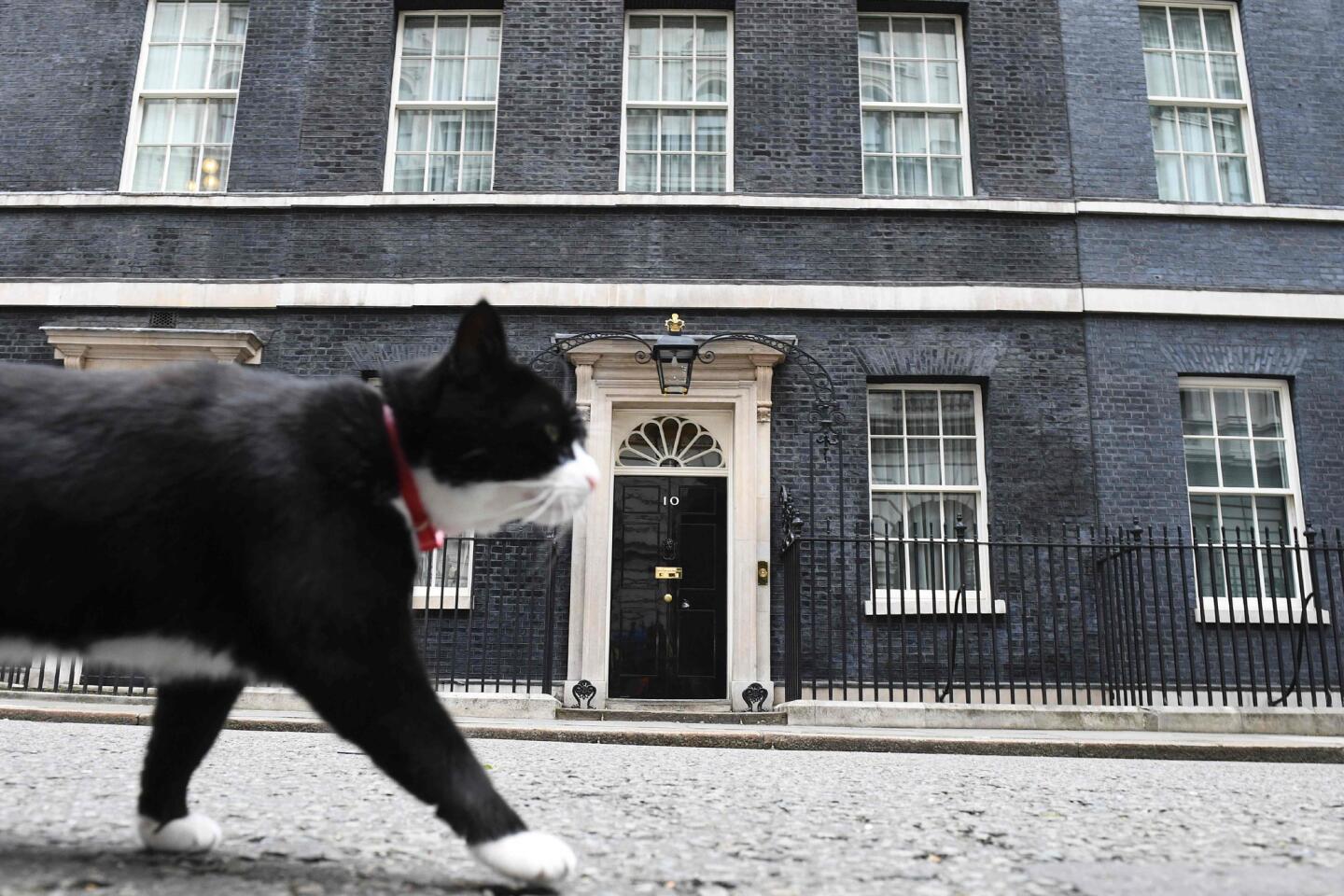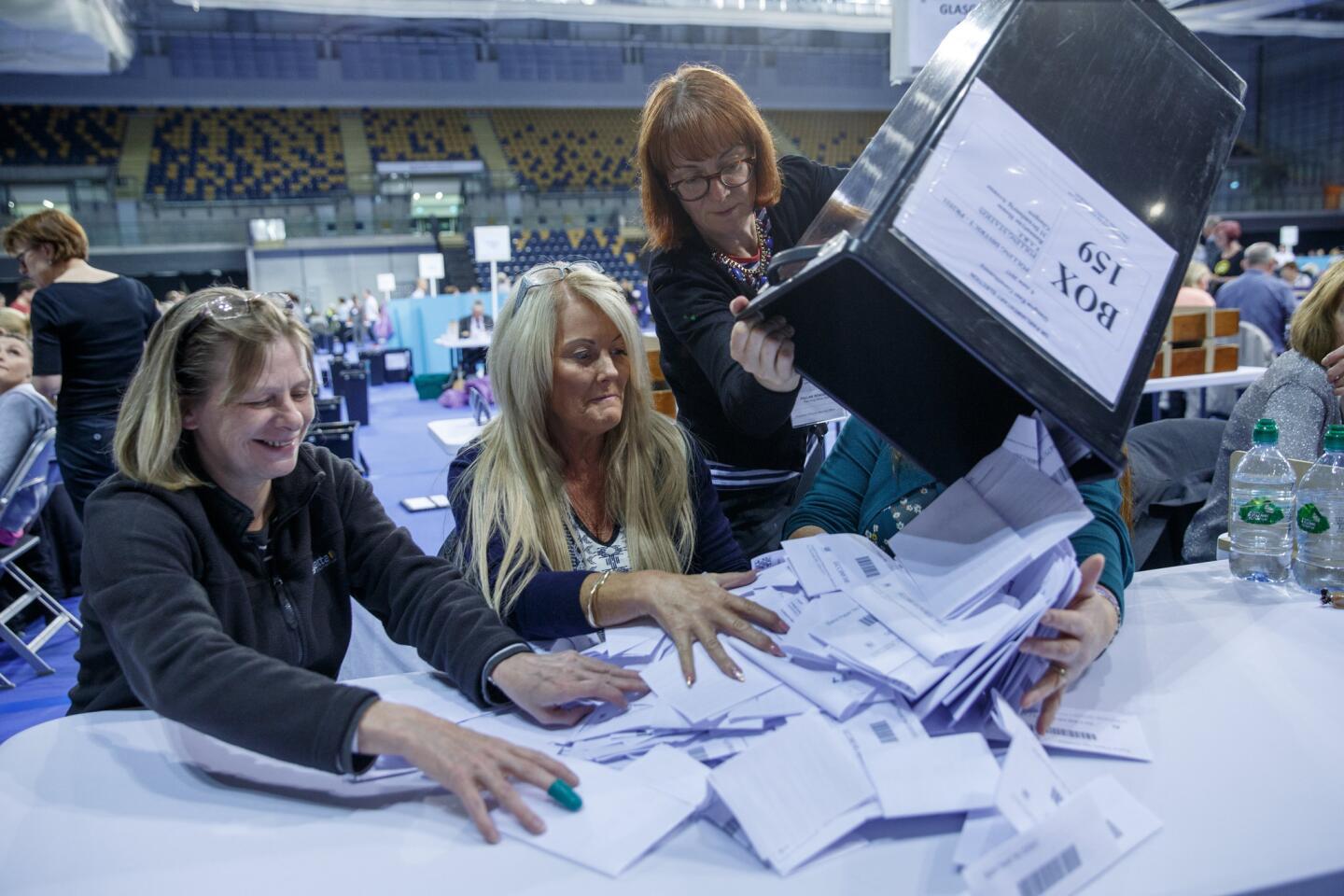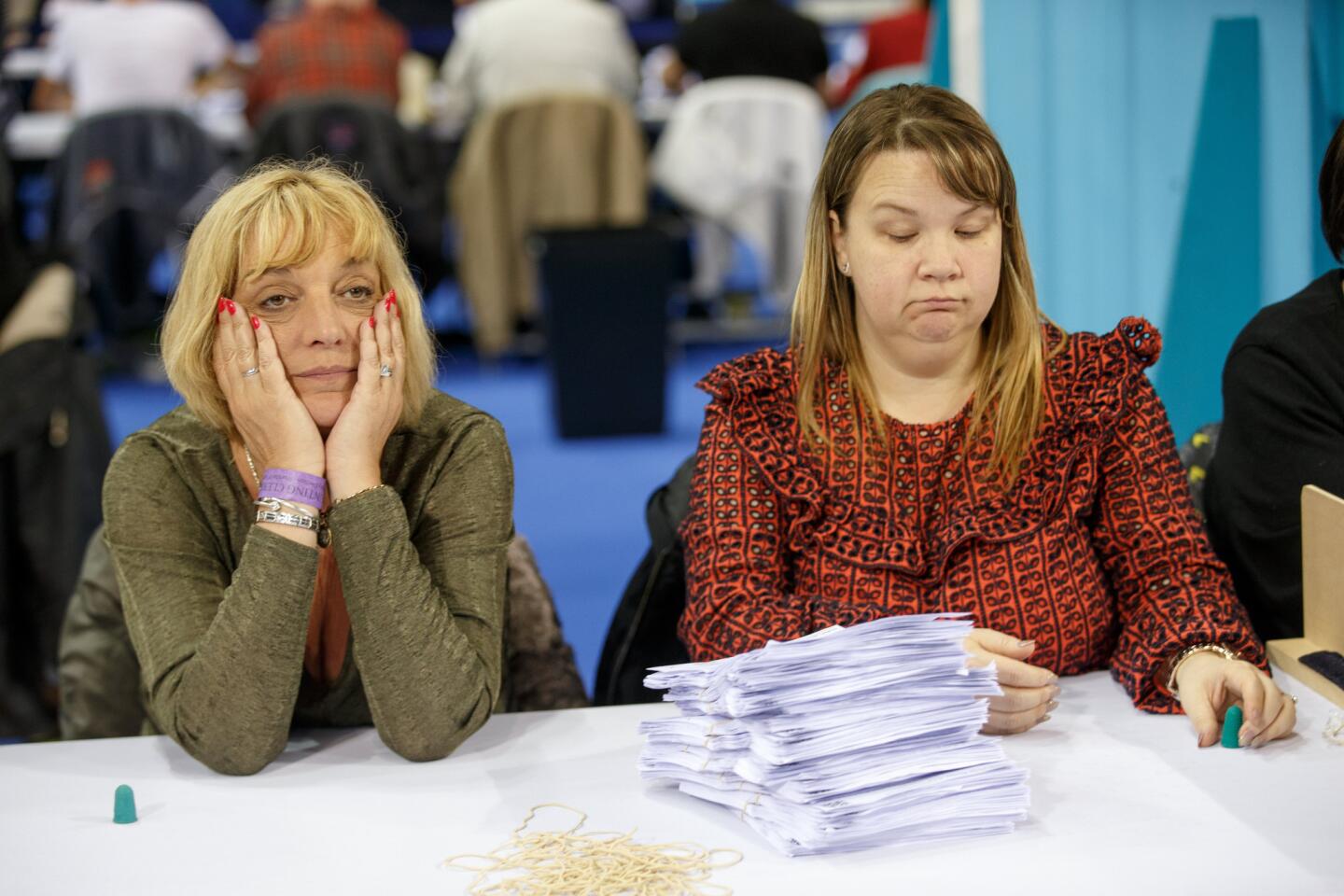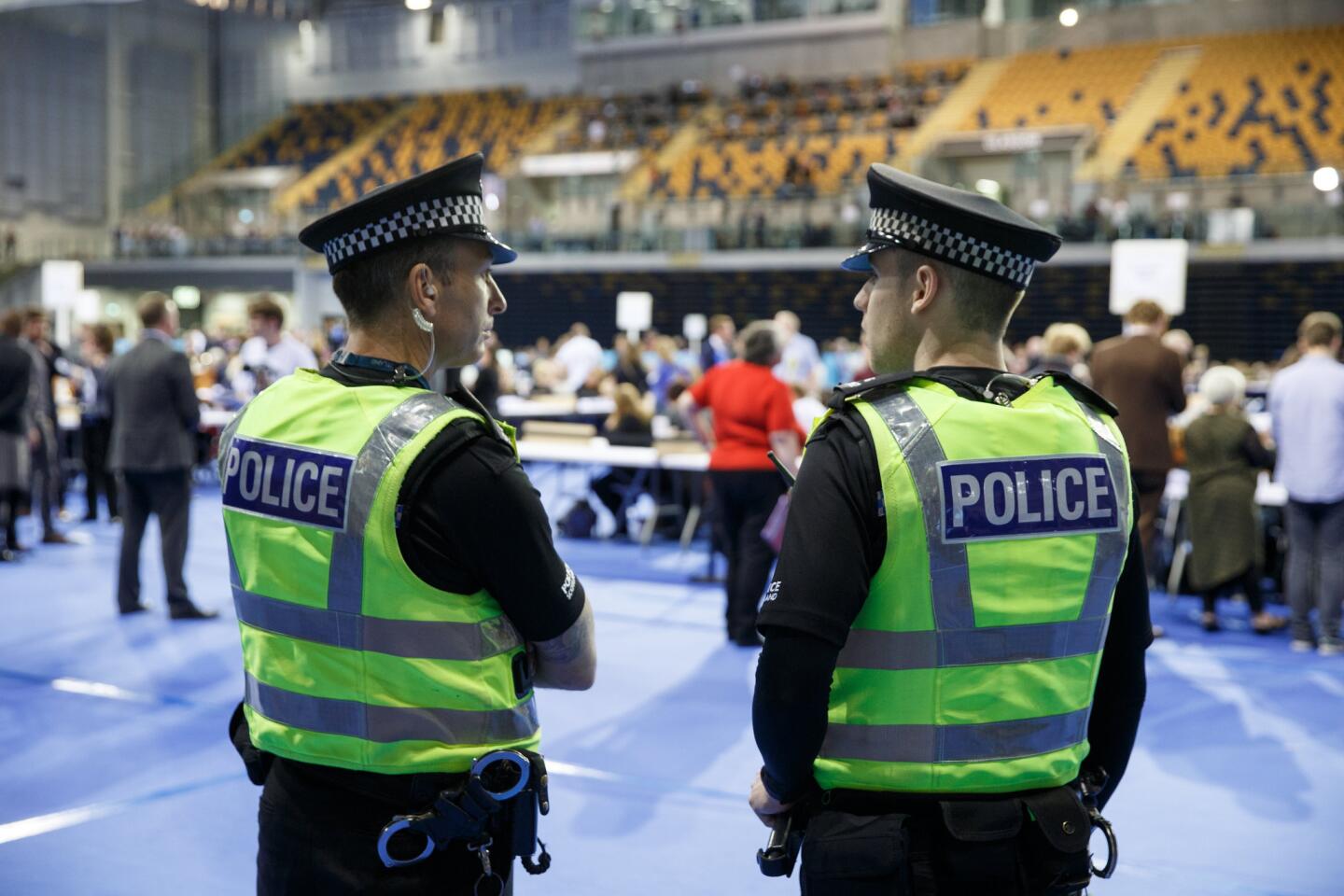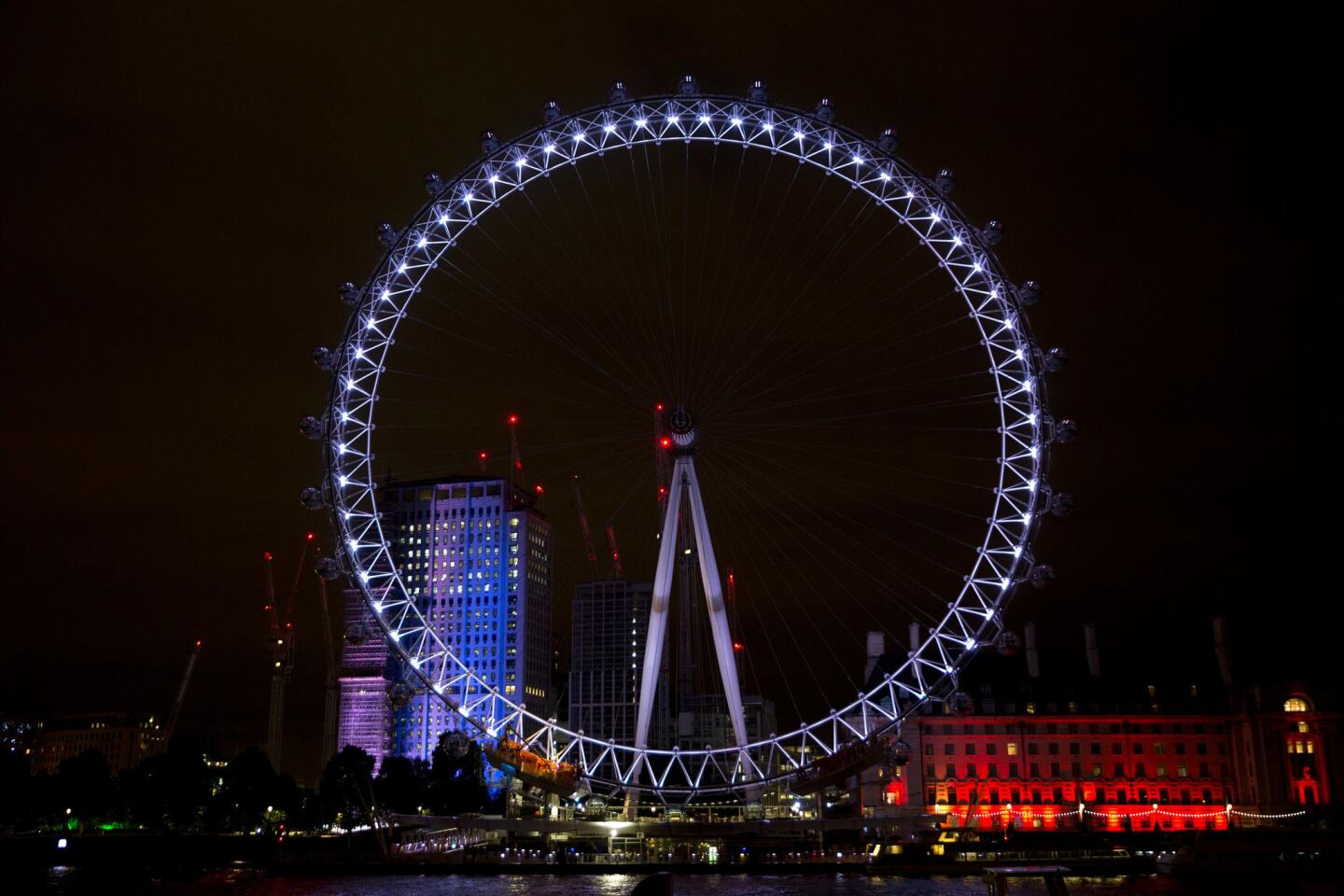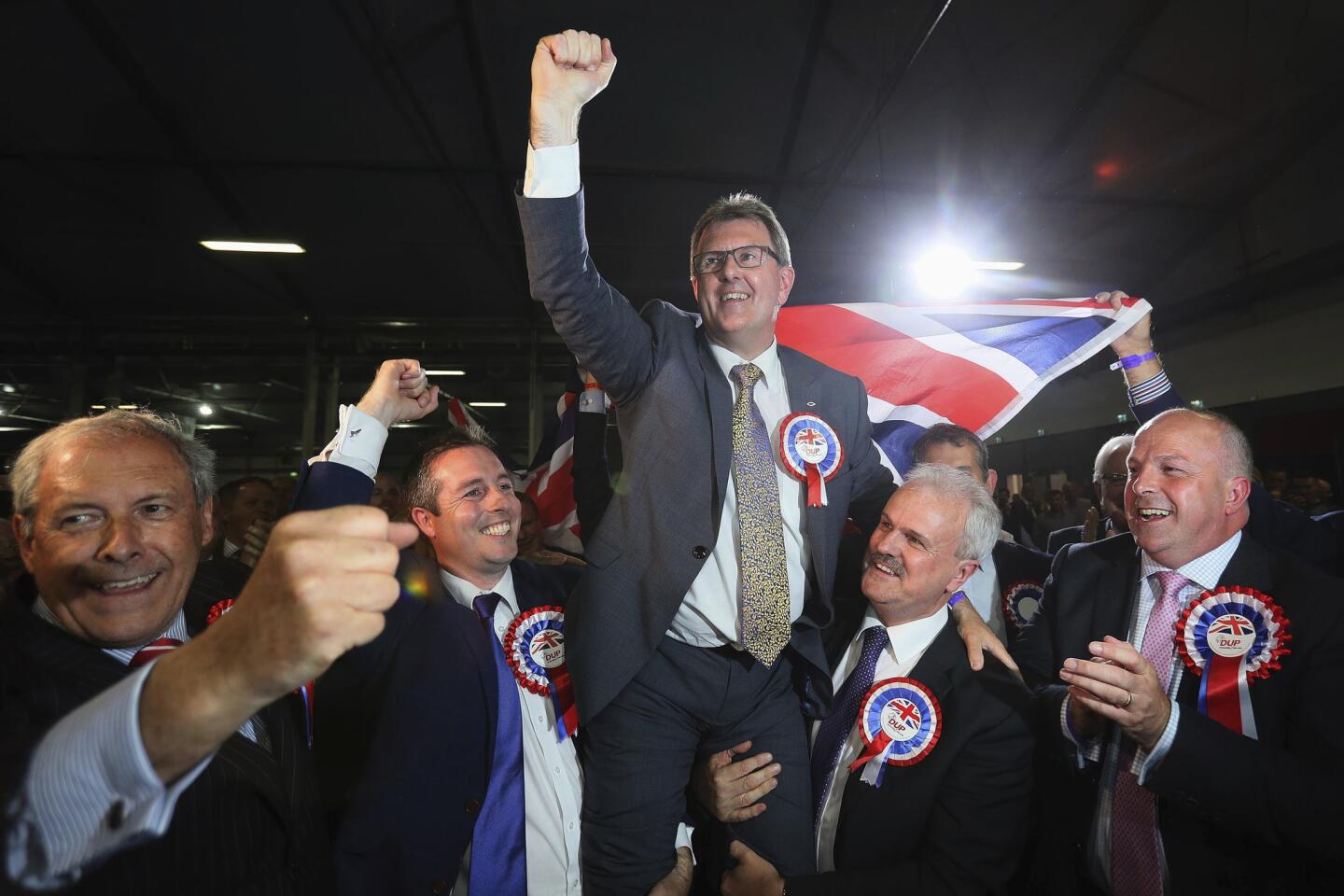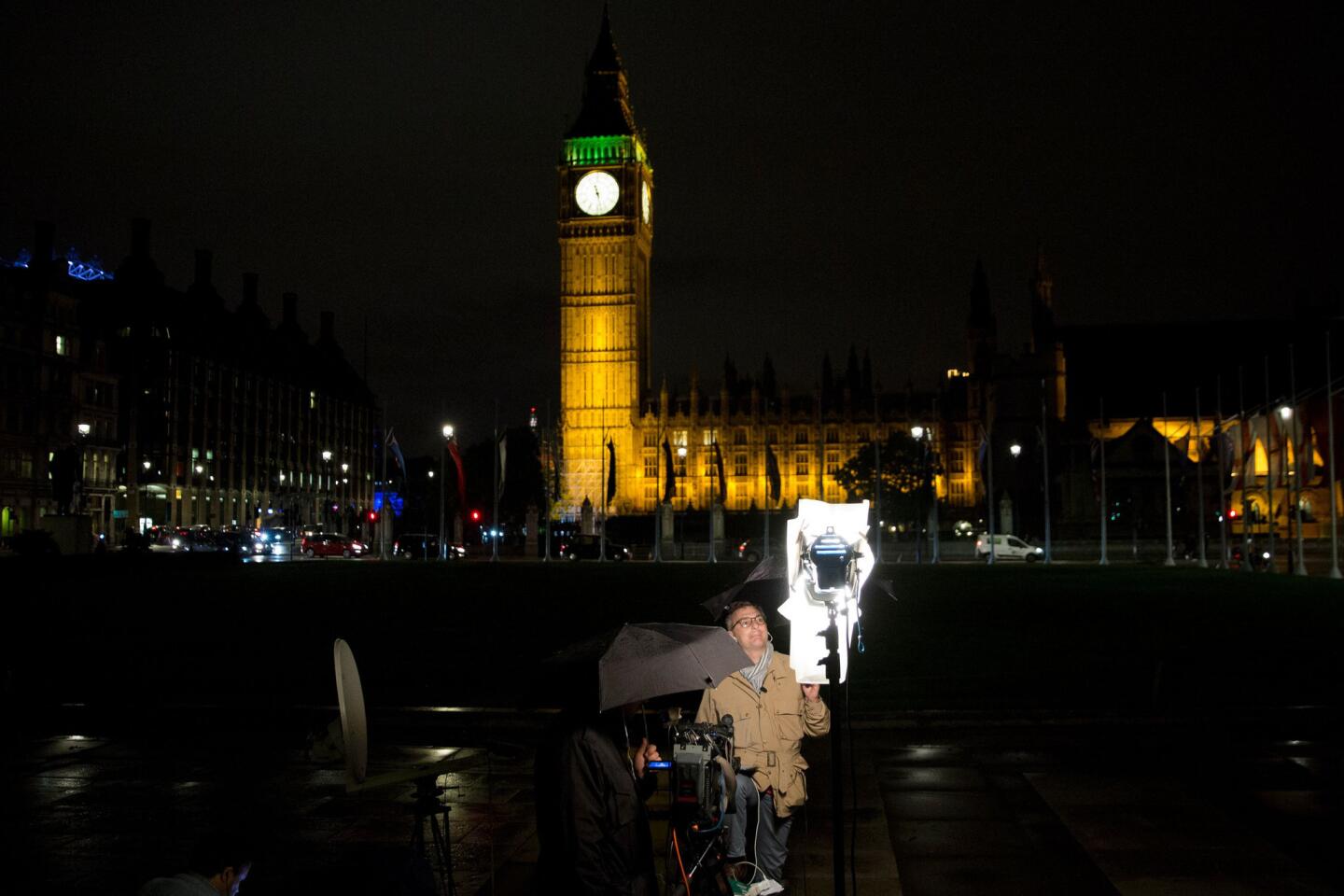With election results still coming in, Britain’s Labor Party leader calls on Prime Minister Theresa May to step down
- Share via
Reporting from London — Britain’s opposition Labor Party leader Jeremy Corbyn called on Prime Minister Theresa May to step down early Friday after exit polling projected that she could fall short of a majority in Parliament.
If confirmed, the result would be a stunning setback for May, who called a snap election to strengthen her hand as she embarks on two years of divorce negotiations with her European Union counterparts.
“The prime minister called the election because she wanted a mandate,” Corbyn said in a victory speech in the north London constituency where he won by a clear majority.
“Well, the mandate she’s got is lost Conservative seats, lost votes, lost support and lost confidence. I would have thought that’s enough, actually, to go and make way for a government that will be truly representative of all the people of this country.”
With results still coming in five hours after the polls closed, the Labor Party was doing better than many had expected, winning 186 seats in the 650-seat House of Commons, compared with 169 for the Conservatives.
May’s voice faltered as she addressed supporters after successfully defending her Maidenhead seat, but she gave no indication that she planned to quit as prime minister.
“As we look ahead and we wait to see what the final results will be, I know that the country needs a period of stability,” she said. “And whatever the results are, the Conservative Party will ensure that we fulfill our duty in ensuring that stability so we can all, as one country, go forward together.”
Interviews with voters as they left the polls suggested that the Conservatives could ultimately claim 314 seats — more than any other party but a drop of 17 compared with the 2015 result.
The Labor Party was projected to win 266 seats, an increase of 34.
The exit poll was conducted for a consortium of British broadcasters and is generally a good indicator of results.
Financial markets were unnerved by the prospect of Britain being thrown into a period of more uncertainty, with the pound dropping sharply against the euro and the dollar as the exit polls came out.
The leader of the UK Independence Party, Paul Nuttall, was quick to heap scorn on May for what could have been a failed gamble.
“If the exit poll is true, then Theresa May has put Brexit in jeopardy,” Nuttall said on Twitter. “I said at the start this election was wrong. Hubris.”
Even the former Conservative chancellor, George Osborne, suggested that May’s political future could be in peril.
“Clearly, if she’s got a worse result than two years ago and is almost unable to form a government, then she, I doubt, will survive in the long term as Conservative Party leader,” Osborne told British media.
Still, Britain’s exit from the EU — colloquially known as Brexit — is unlikely to be derailed entirely. The two parties with the largest vote share — Conservative and Labor — have both agreed to accept the outcome of last June’s referendum, in which the vote to leave the EU was 52% compared with 48% to remain.
The Liberal Democrat Party remained staunchly opposed to leaving the EU, hoping to win over the disgruntled 48% by pledging to hold another referendum on the issue. But the idea gained little traction.
In one of the first big upsets of the night, the former Liberal Democrat deputy prime minister, Nick Clegg, lost his seat in the north of England to a Labor Party rival.
Clegg formed a coalition government with May’s predecessor, David Cameron, in 2010, but stepped down as his party’s leader after its poor showing in the 2015 election. In his concession speech, he made a heartfelt appeal to the politicians who will be forming a new government in the morning.
“It is a Parliament that is presiding over a deeply, deeply polarized country,” he said. “We must try and reach out to each other to try and find common ground if we are to heal those profound divisions,” he said.
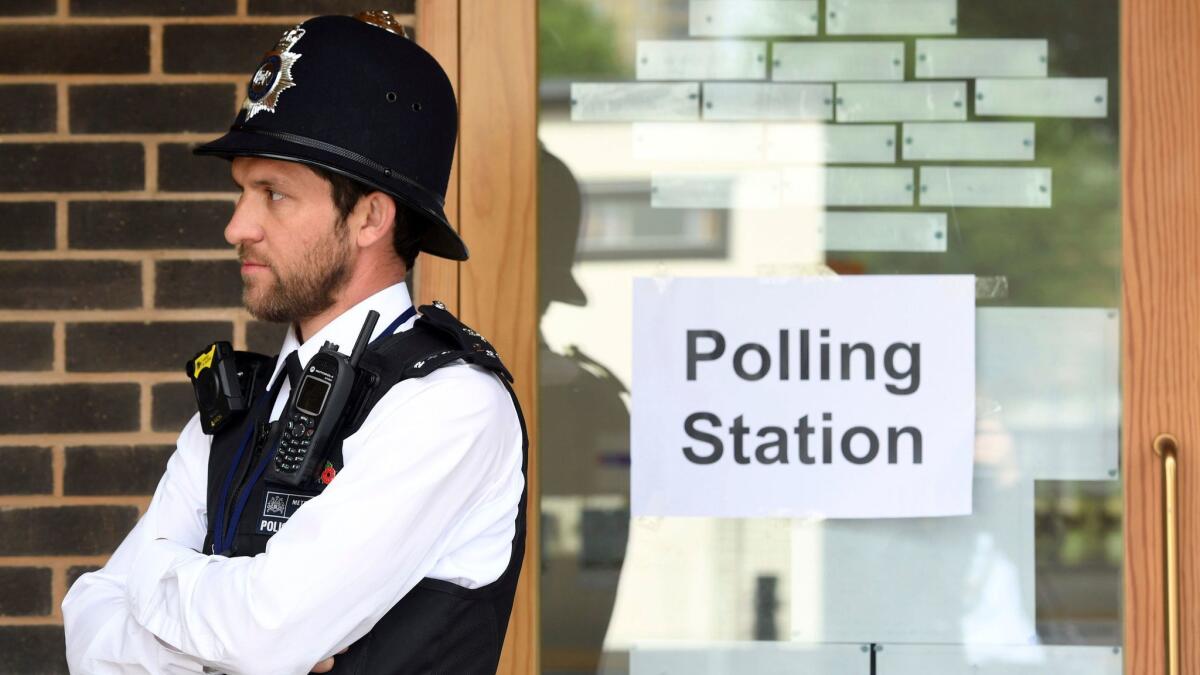
May had looked unassailable at the start of a campaign marred by deadly terrorist attacks in London and Manchester and was widely seen as a strong leader during a time of turmoil.
Even though she was not voted in by the electorate, but succeeded Cameron when he resigned after backing the failed “Remain” side, she quickly took the helm and promised to get Britain the best possible deal from the EU.
Although she initially said she would not call an election until the current parliamentary term was set to expire in 2020, she announced in April that she had decided “with reluctance” that an early vote was necessary to end the infighting that had beset lawmakers and the country since the Brexit vote.
Her decision came after she had triggered Article 50 of the Lisbon Treaty, which formally began the divorce proceedings from the other 27 EU members.
May had made her vision for Brexit clear, stating that there could be no “half in, half out” deal. She said Britain was prepared to withdraw from the European single market — a central tenet of the EU that guarantees the free movement of goods, capital, services and people — and also the customs union, which guarantees tariff-free trade within Europe.
“No deal for Britain is better than a bad deal for Britain,” May said during a speech in January.
This caused alarm among detractors who argued that this so-called hard Brexit was something no one had voted for.
The Labor Party, meanwhile, said that it would seek to pursue a more tempered approach to Brexit, including attempting to negotiate for Britain to remain in the customs union.
That “soft Brexit” option could become more likely if May has to persuade lawmakers from other parties to support her strategy. But being seen as weak at home could ironically make her negotiating life a lot easier.
“If you have a weak position back home, you have a very strengthened position in negotiations, as other countries know you might not be able to get the deal through Parliament,” said Tim Oliver, an associate at LSE IDEAS, a foreign policy think tank at the London School of Economics.
“From the EU perspective, if you’ve got a massive majority, you can make concessions. If you have a small majority, you can say, ‘Cut me some slack.’ ”
Regardless of the final results, the prime minister that the country wakes up to Friday morning will have a huge job ahead.
There are an array of pressing domestic issues, not least the fact that London and Manchester have been hit by three terrorist attacks in as many months.
Brexit negotiations are due to begin June 19. And once the terms of the deal become clearer, it could spark a second independence referendum in Scotland, where the electorate voted 62% to 38% to remain part of the EU.
Election booths opened at 7 a.m. nationwide, and lines formed early in many parts of the country. But many voters said they had only just decided whom to vote for, and the decision had not come easily.
“I was 50/50 between Conservative and Labor,” said Joe Johnson, 22, who was voting in north London. “But I read their manifestos yesterday, and a lot of the Labor policies are not relevant to me. I think the Conservatives are there to get the job done.”
Corbyn was initially virtually written off by much of the British press, who felt he lacked the leadership skills to win over the public and was presiding over a deeply divided party that couldn’t decide if it supported him.
However, he attracted large crowds at his election rallies — including much-coveted younger voters — and made pledges to make the country work “for the many, not the few.”
May, by contrast, was accused of running a lackluster campaign and appearing awkward in interviews, repeatedly trying to make the election about the strong leadership she could provide, without wanting to be drawn into specifics about her Brexit plan.
This left many voters feeling indecisive and uninspired about whom to support.
“I’m not a Corbyn fan,” said hairdresser Natasha Simon, 40, who said she voted Labor on Thursday more because she liked her local candidate than because of the Labor leader. “I don’t know how to feel. Theresa May is decisive, and she gets her point across. I think she’s good.”
Many schools were shuttered to act as polling booths, but in some parts of the country, more inventive methods were used to enable voters to cast their ballots. In Liverpool, a gym was transformed into a polling station; in North Yorkshire it was a train carriage, and in Somerset a farm store.
Boyle is a special correspondent.
UPDATES:
8:15 p.m.: This article was updated with Labor Party leader Jeremy Corbyn calling on Prime Minister Theresa May to step down.
7:20 p.m.: This article was updated with the former Liberal Democrat deputy prime minister, Nick Clegg, losing his seat to a Labor Party rival.
7 p.m.: This article was updated with background and analysis.
4 p.m.: This article was updated with comments on exit poll results.
2:55 p.m.: This article was updated with information that exit polls project the Conservative Party will lose seats.
This article was originally published at 9:05 a.m.
More to Read
Sign up for Essential California
The most important California stories and recommendations in your inbox every morning.
You may occasionally receive promotional content from the Los Angeles Times.
